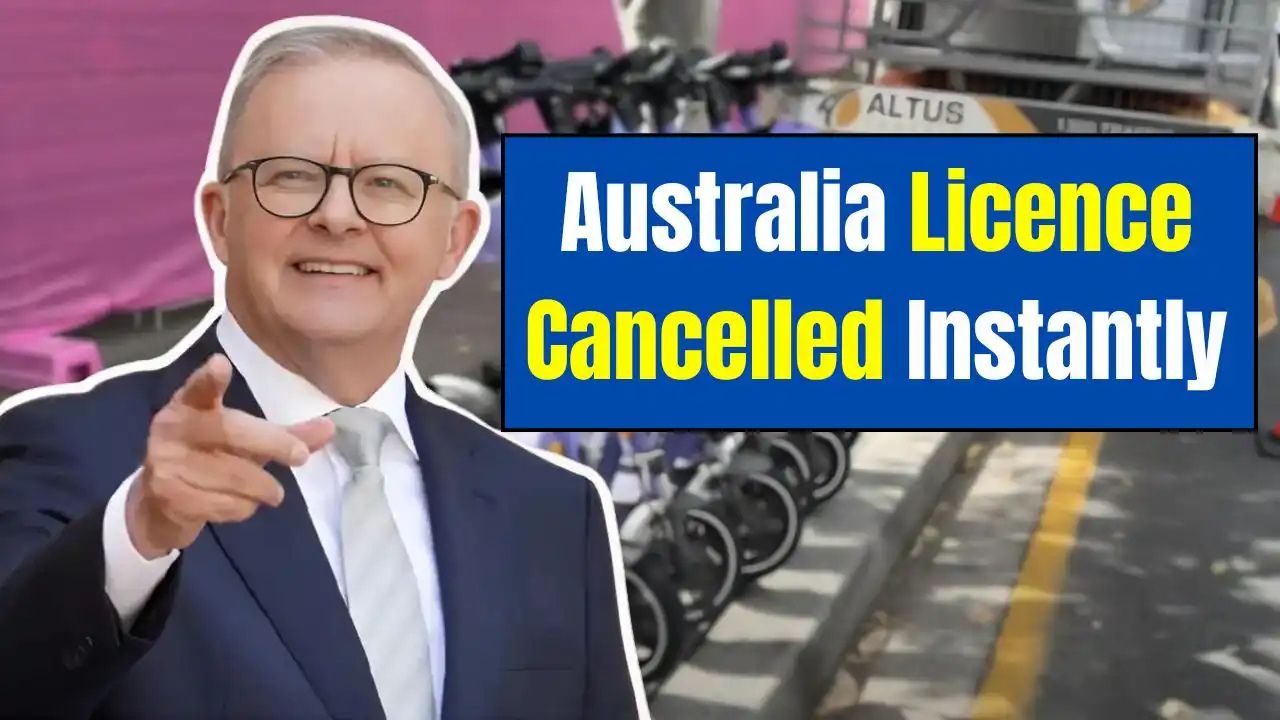From August 1, 2025, Australian drivers will face a sweeping set of traffic law reforms that give authorities greater power to instantly cancel a driver’s licence in certain high-risk situations. This update, introduced following a spike in dangerous driving incidents across multiple states, is aimed at improving road safety and reducing repeat offences.
Under the new framework, police will have immediate authority to cancel or suspend a licence on the spot if a driver commits a severe offence, bypassing the lengthy court process that previously delayed licence disqualifications. The reforms have been developed in consultation with road safety experts, transport departments, and victim advocacy groups.
When Instant Licence Cancellation Will Apply
The laws target extreme breaches of road rules where drivers pose an immediate danger to the public. Instant cancellation will apply for offences such as:
- Exceeding the speed limit by more than 45 km/h
- High-range drink driving (blood alcohol content above 0.15)
- Drug driving with a positive roadside or confirmed lab result
- Street racing, dangerous drag activities, or reckless driving that causes imminent risk
- Driving while disqualified or suspended
- Evading police in a pursuit
Authorities emphasise that these measures are aimed at habitual and high-risk offenders, not everyday motorists who commit minor traffic errors.
How the Process Will Work from August 2025
Previously, drivers accused of serious traffic offences could often continue driving until a court ruling was made. From August 2025, police officers will be able to issue an Immediate Licence Cancellation Notice at the roadside.
Once issued, the driver’s licence becomes invalid instantly, and they are prohibited from driving until their case is resolved or a court grants reinstatement. If found guilty, further disqualification periods and penalties will apply.
Appeals can still be lodged, but the driver must remain off the road until the outcome of the appeal is finalised.
State-by-State Implementation
While the new rules are part of a national road safety push, each state and territory will implement them under its own legislative framework. The key differences are in the threshold penalties and minimum suspension periods:
| State/Territory | Minimum On-the-Spot Cancellation Period | Extra Penalty if Convicted |
|---|---|---|
| New South Wales | 6 months | Additional 6–12 months + fine |
| Victoria | 6 months | Additional 12 months + fine |
| Queensland | 3 months | Additional 6–12 months + fine |
| South Australia | 6 months | Additional 9 months + fine |
| Western Australia | 3 months | Additional 6 months + fine |
| Tasmania | 3 months | Additional 6–12 months + fine |
| ACT | 3 months | Additional 6 months + fine |
| Northern Territory | 3 months | Additional 6–12 months + fine |
Repeat Offenders Face Tougher Restrictions
Drivers with multiple serious traffic offences within a five-year period will be subject to longer cancellation periods and may be required to install an alcohol interlock device once their licence is reinstated. In extreme cases, courts may impose permanent licence disqualification.
The new laws also give police greater access to national driver records, meaning offences committed in one state will affect licence status across all of Australia.
Why the Law is Changing Now
Government data revealed that in 2024, more than 1,200 Australians died in road crashes, with excessive speed, alcohol, and reckless driving being major factors. In several fatal cases, the drivers were already suspended but had not yet faced court, allowing them to continue driving.
Authorities believe removing dangerous drivers from the road immediately will help prevent such tragedies. Road safety advocates have welcomed the move, saying it closes a dangerous loophole in the system.
What Drivers Need to Do
Motorists are urged to familiarise themselves with the new thresholds for instant licence cancellation and to be aware that from August 2025, serious traffic offences will carry immediate and severe consequences. The laws serve as a reminder that driving is a privilege, not a right, and that unsafe behaviour will be met with zero tolerance.





